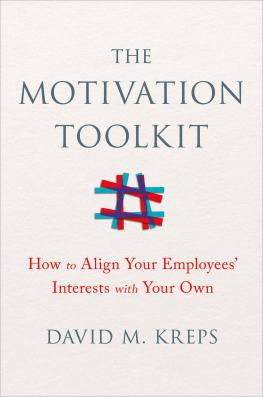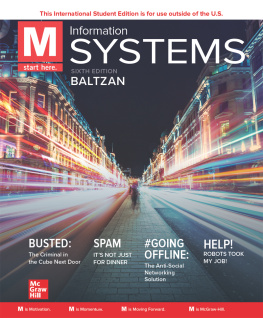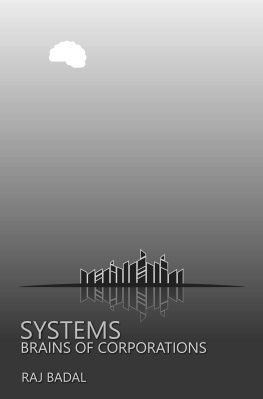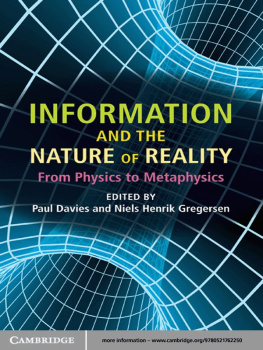
Against Nature
This book questions the nature of the business and social information systems so ubiquitous in contemporary life. Linking positivism, individualism, and market-fundamentalist economics at the root of these systems, it critiques the philosophical ground of this triumvirate as fundamentally against nature. Connecting counter-philosophies of the subject as a natural part of existence, with more collectivist and ecological economics, it presents a historical critique of the development of the academic field of information systems and offers a complex view of the nature of Nature through which we might reshape our approach to technology and to our economies to overcome the existential threat of climate change. As such, it will appeal to philosophers, social theorists, and scholars of science and technology studies with interests in the environment and ecology, as well as those working in the field of information systems.
David Kreps is Reader in the Philosophy of Information Systems at the University of Salford, UK. His books include Bergson, Complexity and Creative Emergence; Technology and Intimacy: Choice or Coercion; and Gramsci and Foucault: A Reassessment .
First published 2018
by Routledge
2 Park Square, Milton Park, Abingdon, Oxon OX14 4RN
and by Routledge
711 Third Avenue, New York, NY 10017
Routledge is an imprint of the Taylor & Francis Group, an informa business
2018 David Kreps
The right of David Kreps to be identified as author of this work has been asserted by him in accordance with sections 77 and 78 of the Copyright, Designs and Patents Act 1988.
All rights reserved. No part of this book may be reprinted or reproduced or utilised in any form or by any electronic, mechanical, or other means, now known or hereafter invented, including photocopying and recording, or in any information storage or retrieval system, without permission in writing from the publishers.
Trademark notice : Product or corporate names may be trademarks or registered trademarks, and are used only for identification and explanation without intent to infringe.
British Library Cataloguing-in-Publication Data
A catalogue record for this book is available from the British Library
Library of Congress Cataloging-in-Publication Data
Names: Kreps, David, 1963 author.
Title: Against nature : the metaphysics of information systems /
David Kreps.
Description: Abingdon, Oxon ; NewYork, NY : Routledge, 2018. |
Includes bibliographical references and index.
Identifiers: LCCN 2018009448 | ISBN 9780815377757 (hbk) |
ISBN 9781351233828 (ebk)
Subjects: LCSH: Information technologyPhilosophy. | Computer
sciencePhilosophy.
Classification: LCC QA76.167 .K74 2018 | DDC 004.01dc23
LC record available at https://lccn.loc.gov/2018009448
ISBN: 978-0-815-37775-7 (hbk)
ISBN: 978-1-351-23382-8 (ebk)
Typeset in Times New Roman
by Apex CoVantage, LLC
1
A transdisciplinary approach
This book offers a view on how to think about information systems if you want to engage with the philosophy of Green IT and Tech for Good. The positivist philosophy behind the information technology revolution is briefly unpacked and countered in this short polemic (I assume many readers will be familiar with much of this critique), and an alternative philosophy process philosophy, as envisioned principally by Henri Bergson and Alfred North Whitehead outlined that shines an entirely different light upon the nature of reality, and our place within it, and a way forward for the green-minded in the digital world.
As such, although in some ways situated within the academic field of Information Systems (IS), this is a transdisciplinary book. As IS scholars Dirk Hovorka and Jacqueline Corbett have said, IS is uniquely situated to transcend disciplinary boundaries, and rich research questions lie in the gaps between the traditional boundaries separating the business, humanities, and scientific disciplines. is an information system. This book takes the latter view, digging up with a nod to Michel Foucaults genealogical practice the deep, discursive underpinnings that make IS possible, questioning them, and presenting countervailing arguments from the time when they arose.
You, the reader, therefore, will find philosophy both metaphysical and political economics, critical theory, complexity theory, ecology, sociology, contemporary investigative journalism, and much else besides, along with the signposts and reference texts of the Information Systems field. This is at once liberating for an author from the world of theatre who studied cultural theory and the sociology of technology whilst engaging as a coder in the early world of the Web and now teaches IS in a business school, studying philosophy in his spare time. It is also a challenge for any reader not familiar with a similar range of literature. Interdisciplinary books, noted My hope is that in the interconnections, arguments, and thrust of this polemic, readers will discover both interest and insight, alongside a range of new avenues to explore.
An additional challenge is that this is not a full-length monograph, with the space to spell out in detail many of the different angles that feed into the core argument. As such, it is inevitably selective and thereby as is any selection subjective. As a short polemic, it nonetheless allows me to focus upon the central claims:
- that the early 20th-century philosophical grounding of todays digital revolution is culpable in digitals (growing) contribution to the ecological catastrophe unfolding in the 21st century
- that process philosophy offers a potential new way to rethink that philosophical grounding and to reshape the digital revolution to support strategies to counter that catastrophe
As such, some readers may already see that not only, along with most technology studies scholars, do I assert that technology is socially shaped , but that I question the commonly held instrumentalist view of technology. This view suggests that technology itself is not inherently good or evil, but it is instead a neutral tool to be used or wielded. As celebrated technology ethicist Luciano Floridi has recently put it, such a dual-use for good or ill approach to technology is both deceptive and inaccurate. The textbook example is the knife that can save a life or murder someone, he says.
And the trivial comment is that its use and hence moral evaluation depends on the circumstances. This is true, but insufficiently perceptive because not all knives are born equal. The very short, blunt and round knife that an airline provides to spread butter has a dual-use hugely oriented to fulfil a purpose that the butcher knife can also fulfil, but much less easily. A bayonet has a dual-use only theoretically because it is designed to kill a human being, not to cut the bread.
My argument in this book is that the foundational philosophy underlying contemporary technology is not the neutral instrument the dual-use view would have it be, but makes inscriptive and delimiting assumptions about the world and our place in it that are neither neutral nor good. This suggests that some innovations, or foundational assumptions, can act like the first word on a Scrabble board, determining what follows, until revolution or paradigm shift brings about a new game and that he made a good deal of money out of this centralisation, is seldom remembered, and a salutary tale for those proponents of distributed local power generation on a roof-to-roof basis for whom such solar energy is a far cleaner and greener solution. Such enframement, whereby the parameters for each new innovation become more and more constrained as the board fills up, and the options for change become more and more contingent, can happen in the world of ideas, too perhaps even more so.












